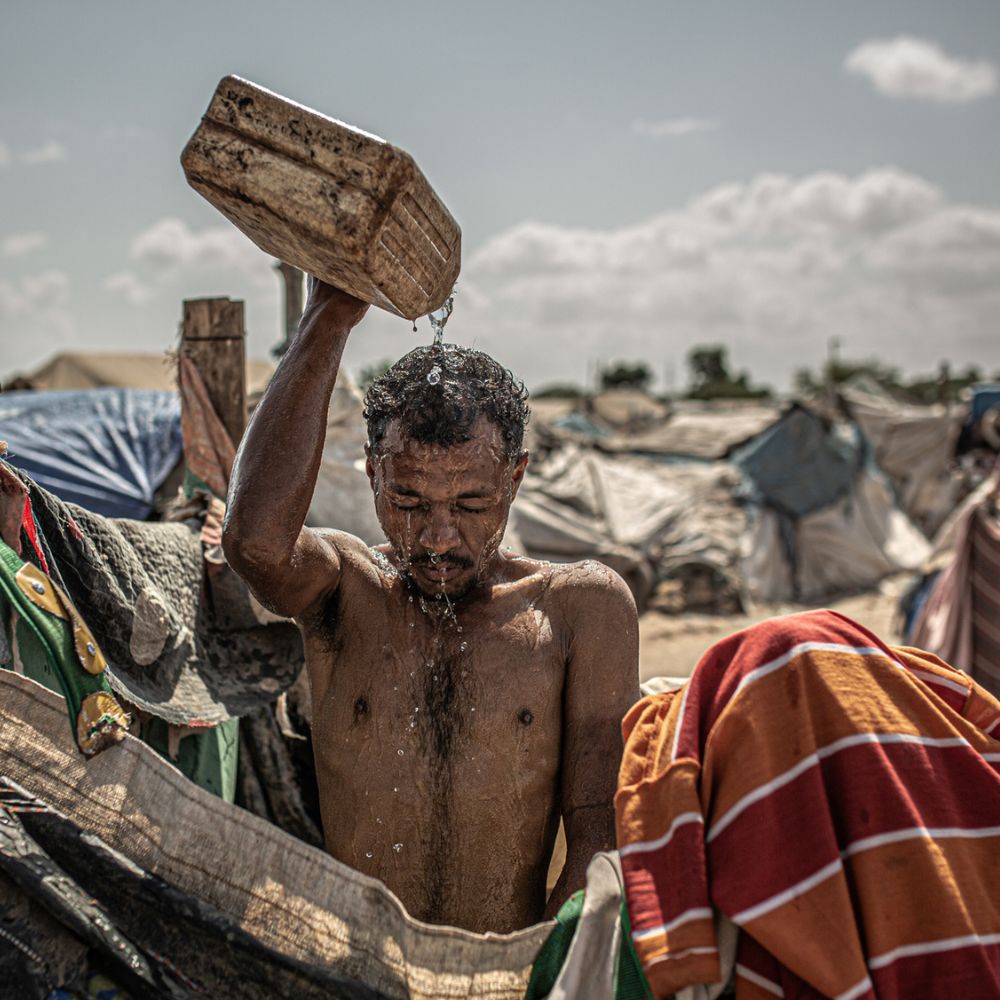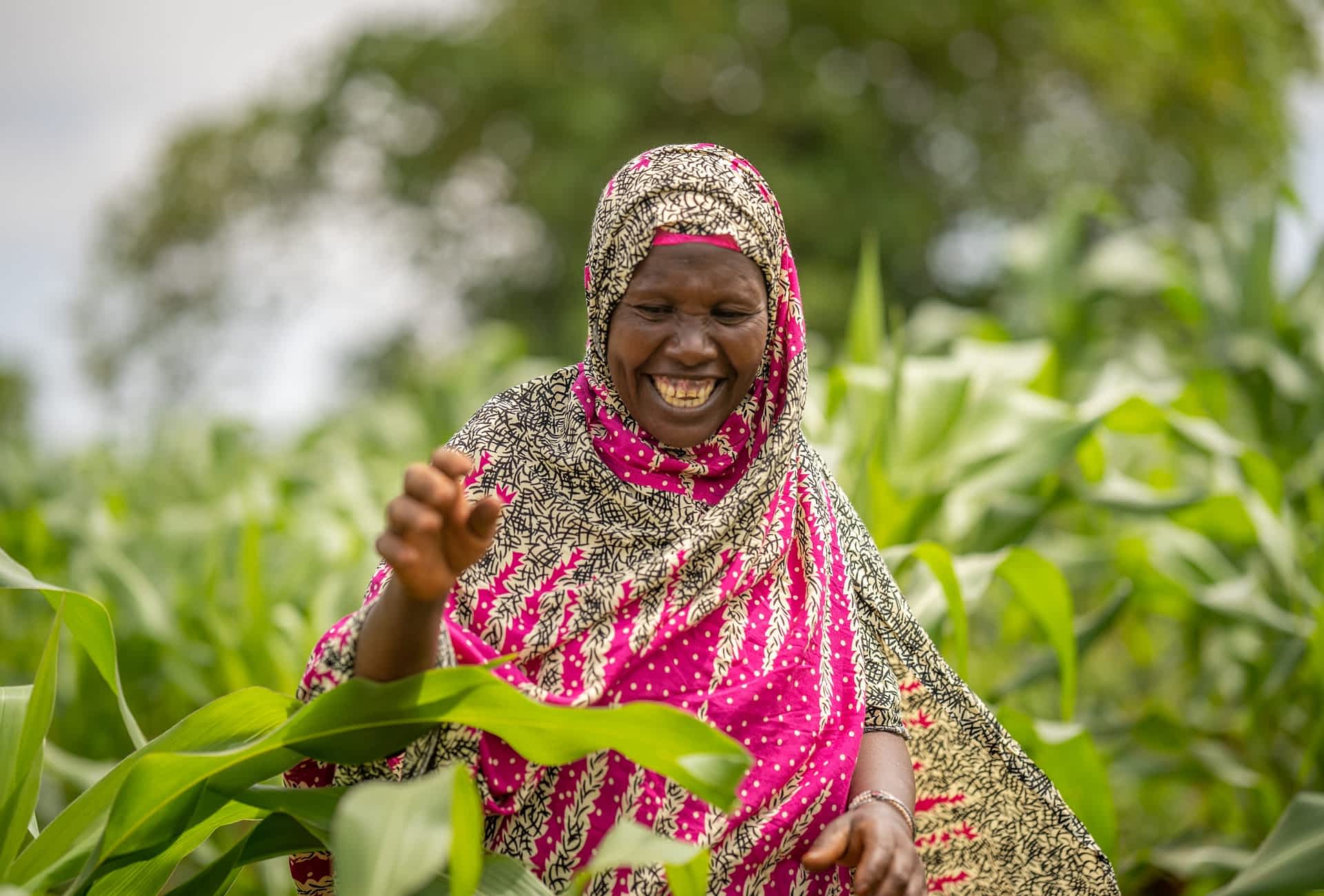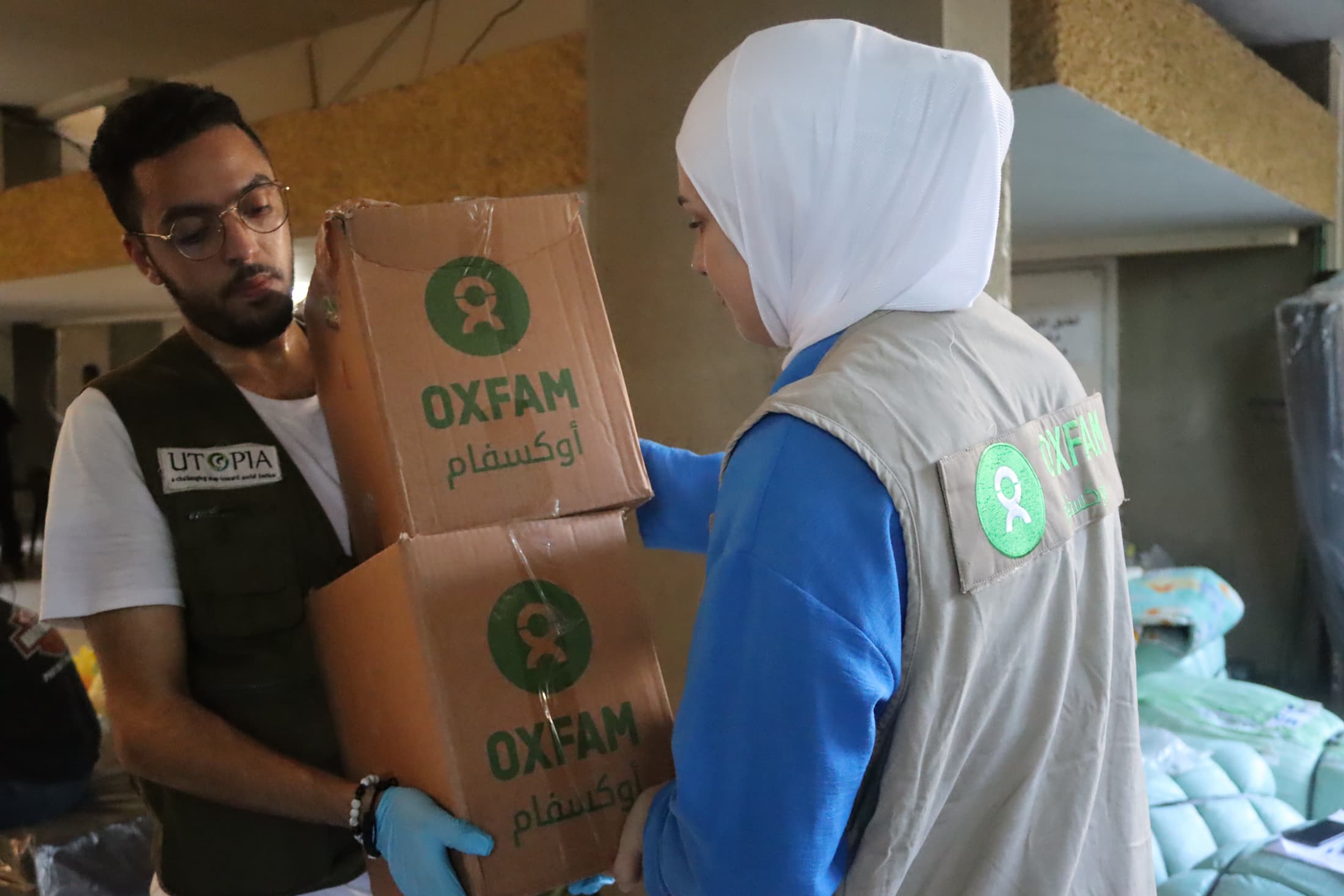
Humanitarian aid
Oxfam is one of the world’s largest humanitarian and development organizations. We are present in some of the most crisis-affected areas, providing both emergency relief and long-term peacebuilding. Our work focuses on women and youth and is carried out in close collaboration with local groups and organizations.
Oxfam Denmark reached 223,659 people
with humanitarian response in 2021
Oxfam Denmark reached 34,332 people
through inclusive peacebuilding in 2021
We worked with 53
local and national partners
56% of the people Oxfam Denmark
worked with were women and girls
Responding to Crisis and Building Lasting Peace
Oxfam works in fragile contexts where overlapping crises have devastating consequences for the world’s poorest and most vulnerable populations. In 2021 alone, 14.4 million people were internally displaced due to conflict and violence. That is why Oxfam Danmark engages in both humanitarian response and long-term peacebuilding.
Meeting Immediate Needs and Strengthening Resilience
In times of crisis, we act swiftly to meet the most urgent needs while laying the foundation for long-term recovery and resilience. Our interventions include:
- Food security and financial support
- Protection of civilians
- Access to safe water, sanitation, and hygiene (WASH)
Whenever possible, we go beyond short-term relief by helping people regain their livelihoods and rebuild stronger, more resilient communities. In Uganda, for example, we support refugees with climate-smart farming techniques that improve harvests and income security.
Empowering Communities to Build Peace
Oxfam supports locally led peacebuilding efforts through dialogue, reconciliation, and inclusive initiatives that promote peaceful coexistence. We prioritize initiatives led by women and youth and strengthen community trust through partnerships and capacity-building efforts.
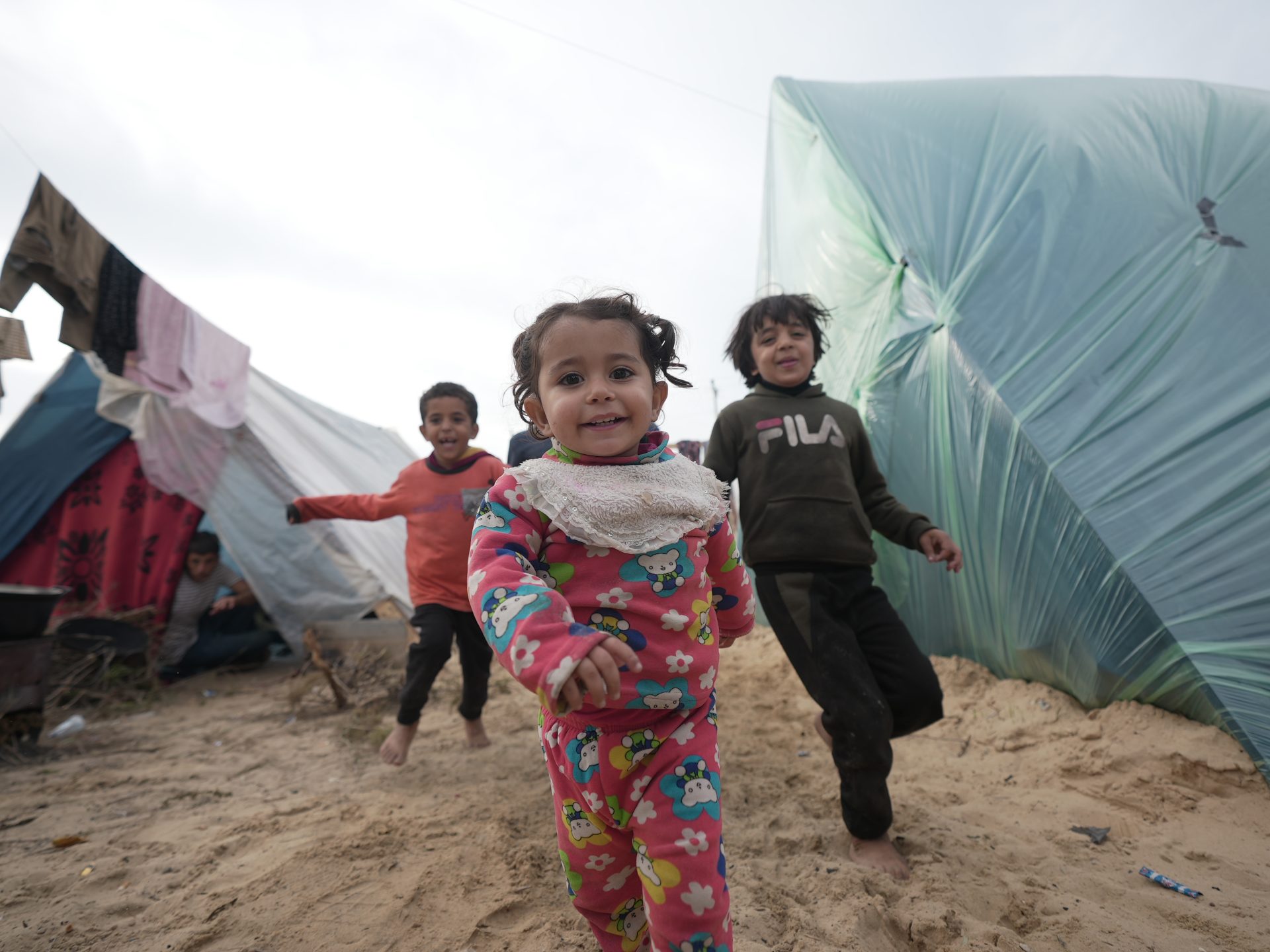
How Oxfam Denmark Engages in Humanitarian Aid and Peacebuilding
- We deliver lifesaving humanitarian assistance to people affected by crises—ensuring their most urgent needs are met with speed, care, and respect.
- We promote resilient livelihoods and access to essential services, enabling people living in crisis to rebuild their lives with dignity and long-term sustainability.
- We strengthen local capacities and community-based mechanisms to manage conflict constructively and resist the escalation of violence and polarization.
- We amplify the voices of crisis-affected people and civil society, ensuring they play a central role in shaping decisions related to peace, security, and humanitarian response.
- We support reconciliation, dialogue, and mediation efforts led by communities themselves, with the aim of fostering long-term peace and rebuilding trust across divides.
Local Leadership and Inclusive Approaches
Every crisis is unique. That’s why our work is context-specific, shaped in close collaboration with local and national groups. We elevate the voices and leadership of people affected by crises—especially marginalized groups—and champion their right to participate and be heard in decisions that affect them.
Protection as a Core Commitment
In conflict and crisis zones, civilian protection is at the heart of our work. We develop local action plans and advocate directly to those responsible for ensuring safety and rights. When violence erupts, we help people reach safety and access legal and medical support.
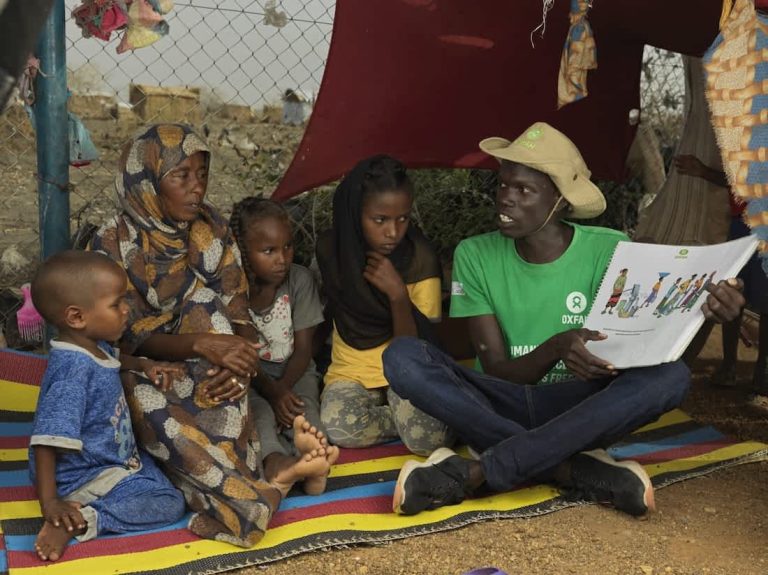
How We Work with Protection
- Supporting local civilian protection initiatives, such as negotiating with military actors or developing emergency plans if armed groups enter the community.
- Helping survivors of violence find safety, legal redress, and medical care.
- Advocating for global systems of accountability so that institutions uphold their duty to protect.
Protection is not only about direct intervention. It also requires us to avoid doing harm. We continuously assess risks, listen to local voices, and adapt our approaches to ensure our support does not exacerbate existing tensions. For example, we consult with women and girls on safe locations for latrines and water points to help prevent gender-based violence.
At a broader scale, we work to improve protection standards at international, national, and local levels. Our policy advocacy holds duty-bearers accountable and strengthens institutional capacity to protect vulnerable communities.
Spotlight: Solar Streetlights Bring Safety to Burkina Faso
In Tougouri, northern Burkina Faso, Oxfam Danmark and our partner ATD installed 43 solar-powered streetlights to improve safety in areas hosting many internally displaced people. Since the project began, cases of gender-based violence have dropped by 87%. Locations were selected through consultations with local authorities and residents, prioritizing high-risk areas such as those near latrines.
Peacebuilding as a Strategy to End Inequality
Inequality is a key driver of violent conflict. That’s why Oxfam fights inequality as a pathway to peace, and works to ensure that women, men, and young people alike play active roles in peace processes.
Working closely with civil society partners and the Oxfam confederation, we draw on our experience in fragile and conflict-affected settings to promote equity and inclusion. We:
- Facilitate multi-level dialogue between diverse actors to ensure civil society has a meaningful seat at the table.
- Push for more inclusive and sustainable peace processes, grounded in local realities.
- Integrate conflict analysis and peacebuilding into all areas of our work.
- Redesign aid and development structures to support locally owned, sustainable peace initiatives.
Our ultimate goal is to empower communities to lead the way toward durable peace and ensure that development assistance is as effective as possible in conflict-affected areas—aligning with the ambitions of UN Sustainable Development Goal 16.
Economic Support and Food Security
At Oxfam Denmark, we work to ensure that all people—especially those affected by crisis—have access to sufficient, nutritious food. Our food security interventions aim not only to meet basic human needs in the short term but also to provide economic support that fosters long-term resilience and development.
Four Pillars of Food Security
Our work in food security is grounded in four key focus areas:
- Availability: We collaborate with communities and families to support the production, distribution, and exchange of food at the local level.
- Accessibility: Every household must have the means to secure sufficient and nutritious food to meet their needs.
- Equity: Food must be shared fairly within households to ensure that all members have access to adequate nutrition.
- Stability: We work to safeguard food systems against price volatility, crop failure, and conflict, so that people can reliably access food at all times.
Supporting People Before, During, and After Crisis
Oxfam Denmark’s food security efforts span a wide range of emergency contexts, from earthquakes, droughts, and tsunamis to protracted conflicts and health epidemics. A core tenet of our approach is that assistance must be continuous: Before, during, and after the crisis. In this way, we respond to urgent humanitarian needs while also contributing to long-term recovery and building stronger, more resilient communities for the future.
Dignity Through Financial Autonomy
Wherever feasible, we provide people with cash, debit cards, or vouchers to use at local markets. This approach not only meets urgent needs but also allows individuals to make their own choices, restoring a sense of dignity and agency in times of crisis. Moreover, it strengthens local economies by stimulating trade and securing livelihoods.
By enabling local purchasing, we reduce waste and lower carbon emissions from transport, making it a more climate-friendly approach to food security.
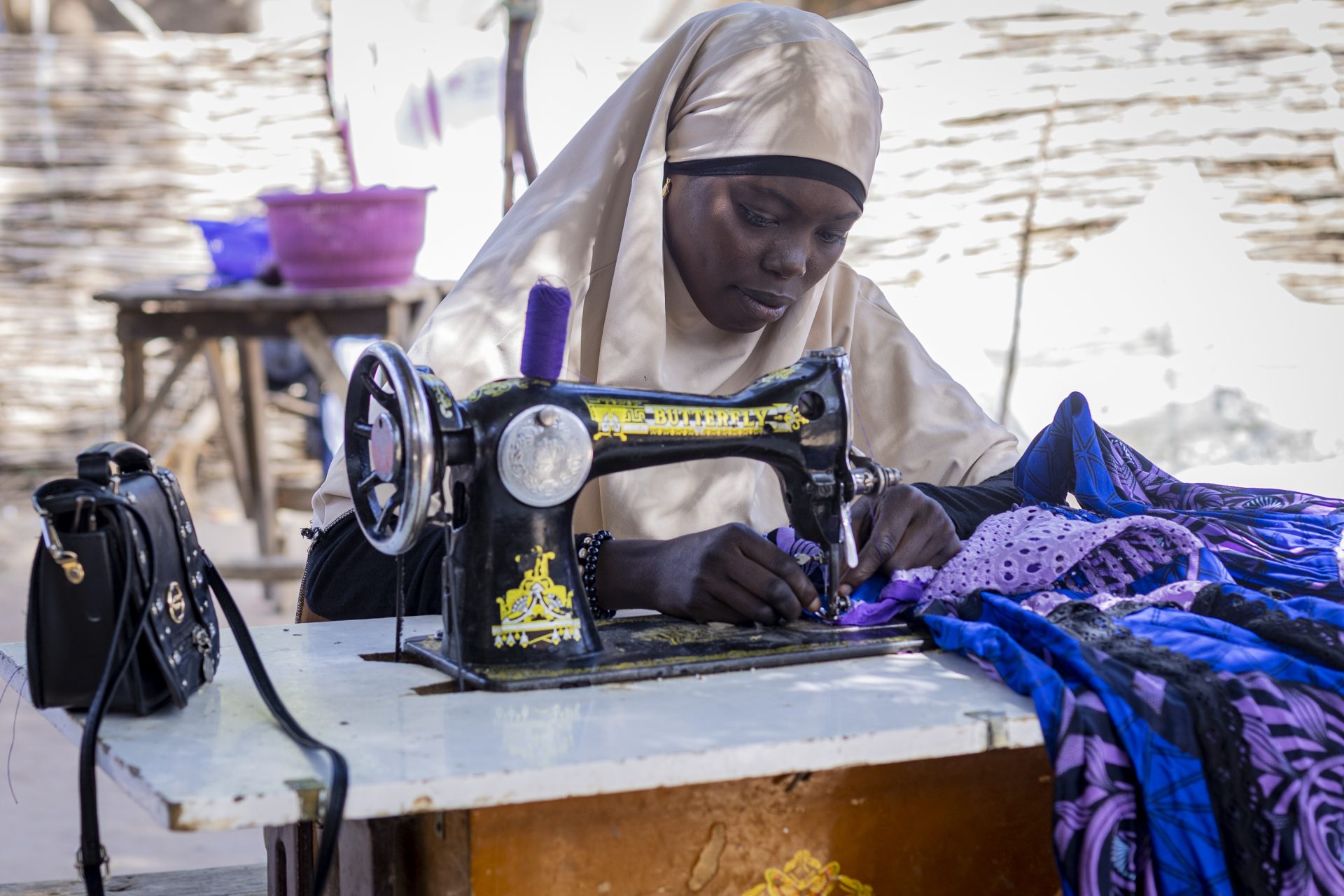
Emergency Relief in Kenya
When the COVID-19 pandemic struck the informal settlements of Mombasa, Kenya, Oxfam Denmark responded by distributing cash assistance to 31,000 people. This emergency support helped the most vulnerable households navigate the crisis and secure essential supplies.
But emergency aid is only the first step. Once the immediate danger subsides, we focus on helping communities rebuild and strengthen their foundations through education and investment in sustainable livelihoods. This may involve providing tools, seeds, and livestock, or offering vocational training opportunities.
Vocational Training for Refugees in Uganda
Shida Gladys was just 22 when she fled war-torn South Sudan with her infant child. In Uganda, she became part of Oxfam Denmark’s vocational training programme, and today, she is a trained tailor.
We supported her with both skills development and start-up capital in the form of a sewing machine. Shida now earns an income from her craft, which she saves toward advanced training and the future employment of two or three assistants. Her long-term dream is to return to South Sudan and train other young people in tailoring, becoming a force for local change and empowerment.
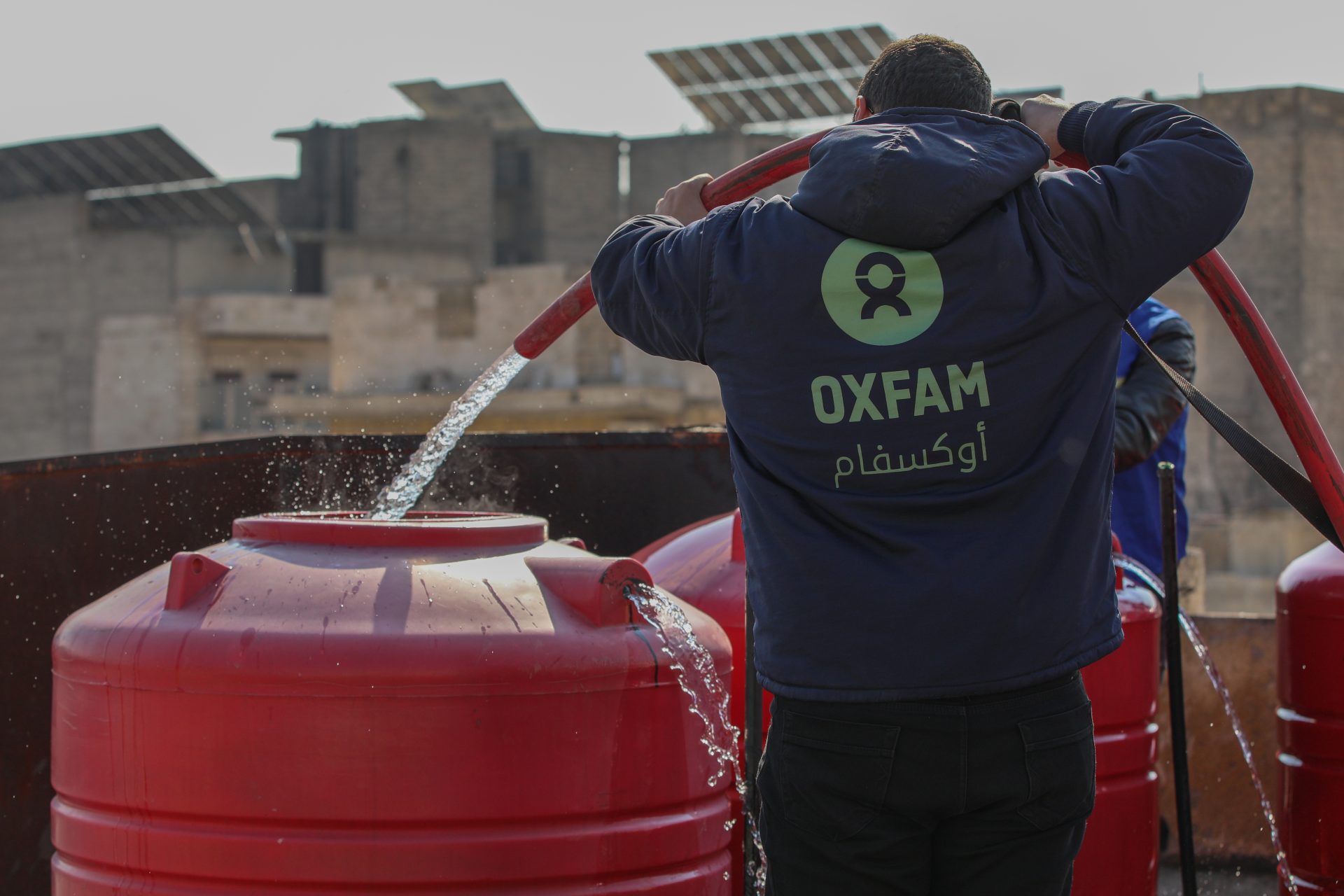
Water, Sanitation and Hygiene (WASH)
Access to clean water, adequate sanitation, and basic hygiene is essential for human health and dignity. Nowhere is this need more urgent than in crisis- and conflict-affected areas, where infrastructure is often damaged or nonexistent.
At Oxfam Denmark, we work to ensure equitable access to water, sanitation, and safe hygiene practices for communities facing the consequences of disaster, displacement, or prolonged instability. Our WASH (Water, Sanitation and Hygiene) initiatives are vital for protecting the health, safety, and dignity of the most vulnerable.
Ensuring Access to Water in Displacement and Crisis Settings
For people living in refugee camps or on the move, access to clean drinking water and safe sanitation can mean the difference between life and death. We respond by:
- Supporting medical care when waterborne illness occurs
- Establishing drinking water points and latrines in refugee and displacement camps
- Preventing and containing outbreaks of cholera and diarrheal disease
- Distributing soap, water containers, and purification tools
Securing Water in Drought-Affected Communities
In drought-prone areas, our teams work directly with local communities to expand and maintain water supply systems. Our activities include:
- Repairing wells and installing solar-powered water pumps to ensure long-term functionality
- Delivering water via tankers when no other options are available
- Providing financial assistance: Cash, vouchers, or prepaid cards, so families can purchase water from local suppliers when needed
These efforts reduce the risk of dehydration, malnutrition, and disease, and help communities maintain their dignity and autonomy even in crisis.
Promoting Health and Preventing Disease
Our WASH programs are deeply rooted in public health strategy. Drawing on years of experience in managing health emergencies such as Zika and Ebola, we were able to respond swiftly and effectively to the COVID-19 pandemic using proven tools and approaches.
Hygiene as a Tool for Prevention
Central to our hygiene interventions is disease prevention and health promotion. In regions threatened by malaria and dengue fever, for example, we:
- Distribute mosquito nets and insect repellents
- Work to reduce mosquito breeding grounds by improving water storage and sanitation
- Share targeted information to encourage behavior that minimizes health risks
Through these efforts, we not only reduce immediate illness but contribute to long-term community resilience.
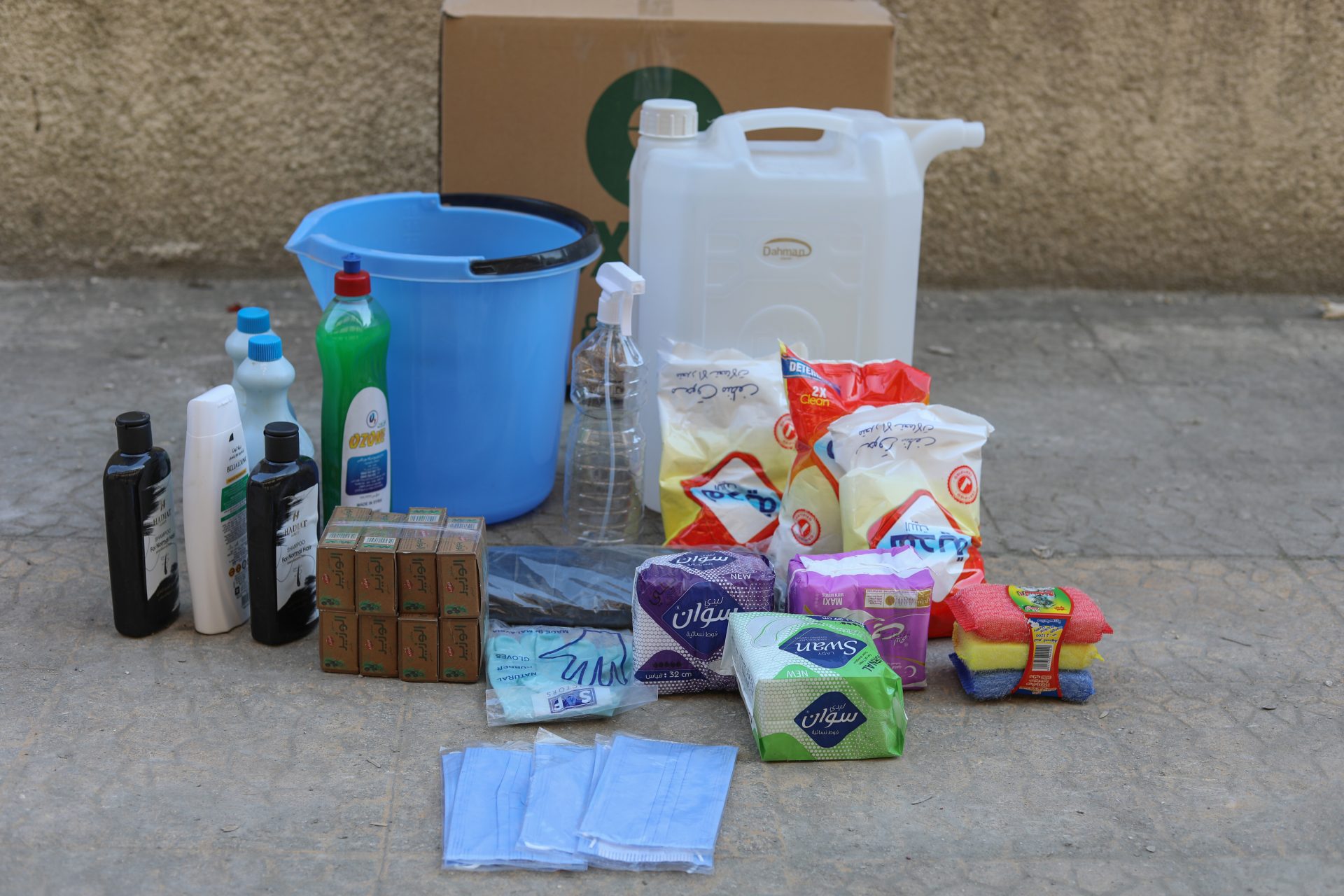
Hygiene Kits for Vulnerable Families in Aleppo
The COVID-19 pandemic has hit the world’s most vulnerable communities the hardest, particularly those living in overcrowded conditions without access to clean water or healthcare. Syria is no exception. As the virus spread across the country, the price of basic goods skyrocketed, placing enormous strain on already fragile households.
My husband is a day laborer and earns about 4 dollars a week. How can anyone expect us to afford hygiene products? What he earns barely covers food.
Wedad, a 42-year-old woman living in Aleppo
In response, Oxfam Denmark distributed hygiene kits to 8,500 people in Aleppo, offering families like Wedad’s the basic tools needed to protect themselves during the pandemic. Each kit contained:
- Soap
- Laundry detergent
- Toilet paper
- Sanitary pads
- Towels
- Tissues
- Dishwashing liquid
These essential supplies helped families reduce the risk of infection and preserve their dignity in the face of crisis. For many, it was the first step toward regaining a sense of safety and control during an uncertain time.
Strengthening Change Through Local Partnerships
Oxfam Denmark’s humanitarian efforts are grounded in a long-standing commitment to local partnerships. We believe that sustainable social change is only possible when local actors have ownership of the solutions and a strong voice in the decision-making process. That is why we place local leadership at the heart of our work.
A Partnership Approach Built on Trust and Shared Values
Our approach to partnership is based on mutual respect, trust, and shared responsibility. We operate according to six core principles:
- Shared vision and values
- Alignment of purpose and results
- Autonomy and independence
- Transparency and mutual accountability
- Clarity in roles and responsibilities
- Long-term commitment to joint learning
These principles ensure that our collaborations are rooted in fairness, clarity, and a genuine belief in the power of local leadership.
Recognising Diversity and Supporting Local Leadership
Oxfam Denmark collaborates with a broad spectrum of partners—from national NGOs and grassroots civil society organisations to strategic alliances in complex contexts. We recognise the diversity of these actors, their varying priorities, and their unique capacities.
To honour our international commitments and maximize our impact, we are dedicated to directing as large a share of our funding as possible to our local partners. This ensures that resources reach the communities we serve and contribute directly to local development.
Building Capacity and Connections
We support, develop, and empower our local partners by:
- Providing long-term, flexible funding This enables local organisations to respond swiftly to changing needs while maintaining independence.
- Strengthening dialogue and feedback mechanisms We prioritise open, two-way communication to ensure ongoing alignment and learning.
- Building capacity through collaborative development Through active engagement and training, we support our partners’ institutional growth.
- Improving information exchange We foster transparent communication and knowledge sharing to support effective programming.
In addition, we connect local actors across regions and sectors to facilitate alliance-building and collective action. These networks amplify local voices and build stronger, more resilient civil societies capable of engaging effectively with authorities and holding power to account.
Conflict and Inequality: Intertwined Challenges
In many fragile contexts, inequality intensifies both during and in the aftermath of violent conflict. Today, the majority of protracted violent conflicts occur within countries, not between them. These internal crises are deeply shaped by—and in turn exacerbate—existing inequalities.
Armed conflict amplifies disparities across social, economic, and political dimensions. Gender inequality is particularly acute: women and girls are disproportionately affected, often facing targeted violence and making up the overwhelming majority of survivors of sexual and gender-based violence (SGBV).
At the same time, evidence shows that gender equality is one of the strongest indicators of a society’s likelihood to maintain peace. While inequality does not directly cause conflict, the two are inextricably linked. Structural injustices and marginalization create fertile ground for unrest, polarization, and violent escalation.
Any meaningful effort to reduce inequality must therefore also address the root causes of conflict. This includes promoting inclusive governance, investing in community-led peacebuilding, and ensuring that the voices of marginalized groups are not only heard but empowered.
Together, We Can End Famine
Oxfam is working to ensure that vulnerable people living in the world’s most fragile contexts are not left to face hunger alone. Profound inequalities in the global food system mean that—despite there being enough food to feed everyone—over 205 million people across 45 countries currently face acute food insecurity. They are severely malnourished and in urgent need of humanitarian assistance. This crisis is driven by the compounding effects of climate change, conflict, and economic shocks.
We respond to immediate needs by providing emergency cash transfers, enabling families to access food with dignity while supporting local markets. At the same time, we work to strengthen long-term resilience: improving agricultural practices, diversifying livelihoods, enhancing water and sanitation infrastructure, and equipping communities to withstand future crises.
With your support, we can meet today’s urgent needs—and help build a future where no one is left to go hungry.
